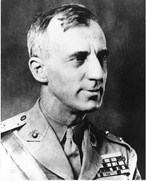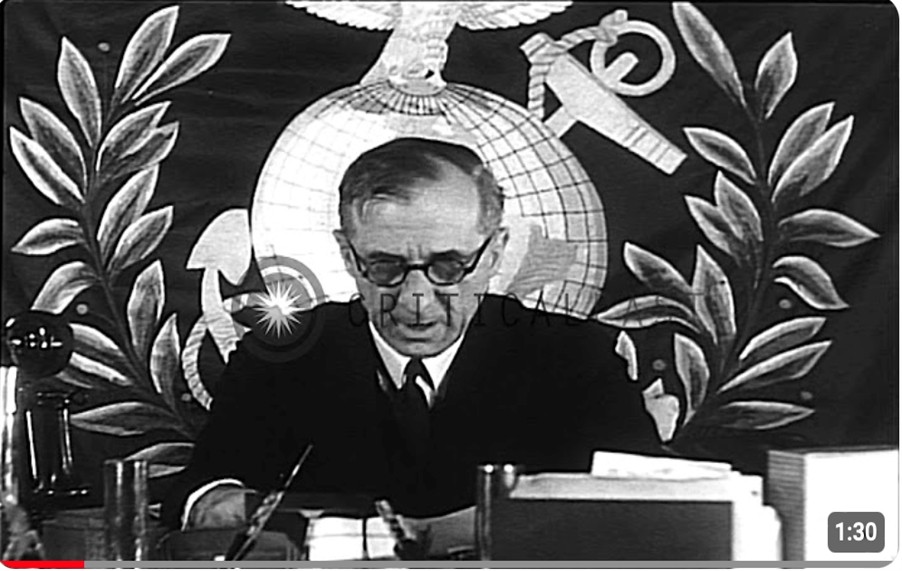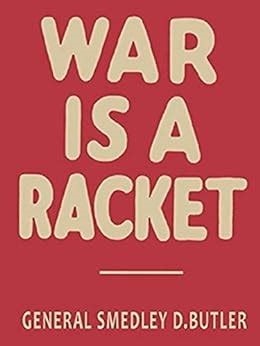Among the new political dissidents, the idea that the business elite, specifically the American business elite, are fanboys of authoritarian government is a widespread belief. Many who take this view will be familiar with the work of Professor Anthony C Sutton, particularly his ‘Wall Street Trilogy’ comprising ‘Wall Street and the Bolshevik Revolution’, ‘Wall Street and FDR’ and ‘Wall Street and the Rise of Hitler’. Many of the business moguls and bankers of the early 20th Century, John D Rockefeller, J P Morgan and Andrew Carnegie among them, were very much interested in the ideas of Karl Marx which, you might think, is counter intuitive. Weren’t they capitalists, after all? Why would they like what Marx had to say on anything? Why indeed, until you come to the realisation that these people were not free-market capitalists at all. Sure, they had vast amounts of capital at their disposal, but they were really monopolists who enjoyed nothing more than the driving out of business of competitors and potential competitors.
John D Rockefeller was a case in point whose Standard Oil Trust vertically integrated land acquisition, oil production, refining, distribution and by-product creation until it controlled over 90% of the US oil refining industry and 85% of the distribution railroads. Until, that is, severe criticism led to a case against it under the Sherman anti-trust law in 1906 which was upheld by the US Supreme Court in May 1911. Standard Oil was broken up into over 40 separate companies but ironically Rockefeller managed to retain a 25% interest in each one, so he still had effective control. However, this created a long-standing enmity towards the processes of democratic government which was shared by many of his associates. They felt that it limited them, and they thought they deserved to be above that.
The families who controlled large swathes of US industry and finance passed these attitudes on to succeeding generations and they slowly built their power and influence through their so-called philanthropic (read tax-free) foundations and the national and supra-national organisations with which we are familiar today - the US Federal Reserve system, the United Nations, the World Economic Forum and the Club of Rome, for example. As we know, much of the madness which surrounds us today emanates from these organisations, which find no shortage of willing helpers and other useful idiots to assist in carrying out their plans for a One World Government, a government which could not be anything other than anti-democratic and ruthlessly authoritarian. What is unfolding in front of us in the Western world is a globalists’ coup. 
This is not the first time they have tried. They have form. But they were stopped by one man of honour - Major-General Smedley Darlington Butler formerly of the US Marine Corps. Few people will have heard of him these days and fewer still will know of the planned military coup which had been proposed in the United States in 1933. It is known as the Business Plot.
First, a little bit about Smedley Butler the man. His Wikipedia entry opens:
Major-General Smedley Darlington Butler (July 30, 1881 – June 21, 1940), nicknamed the Maverick Marine, was a senior United States Marine Corps officer. During his 34-year career, he fought in the Philippine–American War, the Boxer Rebellion, the Mexican Revolution, World War I, and the Banana Wars. At the time of his death, Butler was the most decorated Marine in U.S. history. By the end of his career, Butler had received sixteen medals, including five for heroism; he is the only Marine to be awarded the Brevet Medal as well as two Medals of Honor, all for separate actions.
From 1927 to 1929, Butler was commander of a Marine Expeditionary Force in Tianjin, China, (the China Marines). While there, he cleverly brokered his influence among various generals and warlords to the protection of U.S. interests, ultimately winning the public acclaim of contending Chinese leaders. When he returned to the United States in 1929, he was promoted to Major-General, becoming, at age 48, the youngest officer to attain that rank in the Marine Corps. But the death of his congressman father on May 26th 1928 ended the protection he had from political retribution for his outspoken views.
In 1931, Butler violated diplomatic norms by publicly recounting gossipabout Benito Mussolini in which the dictator allegedly struck and killed a child with his speeding automobile in a hit-and-run accident. The Italian government protested and President Herbert Hoover, who disliked Butler,forced Secretary of the Navy, Charles Francis Adams III, to court-martial him. Butler became the first general officer to be placed under arrest since the Civil War. He apologized to Secretary Adams and the court-martial was cancelled with only a reprimand.
He was a candidate for Commandant of the Marine Corps in 1930 but Hoover’s dislike of him and the outspokenness that characterised his run-ins with other politicians, the "unreliability" mentioned by his superiors when they were opposing Butler's posting to the Western Front, and his comments about Mussolini resurfaced so he was passed over and it resulted in his requested retirement in late 1931.
He then took up lecturing full time and he donated much of his earnings from his lucrative speaking circuits to the Philadelphia unemployment relief. He became widely known for his outspoken speeches against war profiteering, U.S. military adventurism, and what he viewed as nascent fascism in the United States. Touring the Western United States, he made 60 speeches before returning for his daughter's marriage which was to be the only time he wore his dress blue uniform after he left the Marines. He announced his candidacy for the U.S. Senate in the Republican primary in Pennsylvania in March 1932 as a proponent of prohibition, known as a "dry" but was defeated in a primary election the following month with only 37.5% of the vote compared to the incumbent Sen. James J. Davis's 60%.
During his Senate campaign, Butler had spoken in support of the veterans' bonus. Veterans of World War I, many of whom had been out of work since the beginning of the Great Depression, sought immediate cash payment of Service Certificates granted to them eight years earlier via the World War Adjusted Compensation Act of 1924. Each Certificate, issued to a qualified veteran soldier, bore a face value equal to the soldier's promised payment, plus compound interest. The problem was that the certificates (like bonds), matured 20 years from the date of original issuance, thus, under extant law, the Service Certificates could not be redeemed until 1945.
In June 1932, approximately 43,000 marchers, including 17,000 World War I veterans, their families, and affiliated groups, protested in Washington, D.C. This "Bonus Army", had marched on Washington to advocate the passage of the "soldier's bonus" for service during World War I. After Congress adjourned, bonus marchers became unruly and two were shot by police, causing the entire mob to riot. The United States Bureau of Investigation (later known as the FBI), checked its fingerprint records to obtain the police records of those who had been arrested during the riots or who had simply participated.
The veterans made camp while they awaited the congressional decision on paying the bonus, but the motion was decisively defeated. The veterans stayed in their camp whereupon Butler arrived on July 19th with his young son Thomas. He walked through the camp and spoke to the veterans telling them that they were fine soldiers who were right to lobby Congress. He and his son ate and spent the night with the men, and in the morning, he gave a speech to the camping veterans. He instructed them to keep their sense of humour and cautioned them not to do anything that would cost them public sympathy.
On July 28th, army cavalry units led by General Douglas MacArthur dispersed the “Bonus Army” by riding through it and using gas. During the conflict several veterans were killed or injured. Despite being a Republican, Butler declared himself opposed to the re-election of President Herbert Hoover.
In the spring of 1933, newly elected President Franklyn Delano Roosevelt (FDR) believed that the government of a modern, civilised country should endeavour to end poverty, reduce unemployment and redistribute wealth. This ‘New Deal’ angered the business class and was opposed by bankers, industrialists and stockbrokers who thought his policies were downright revolutionary. They feared for their fortunes and took to referring to him as a traitor to his own class. Many of them had already backed the Bolsheviks in Russia on the expectation of having access to the captive markets created and they felt the same about both the rising Hitler and the NSDAP in Germany and Mussolini’s Italy.
In such an atmosphere the sparks of anti-FDR feelings became open hatred. Many American academics and businessmen saw Nazism and fascism as models for the United States to emulate. The rise of Hitler and the explosion of the Nazi revolution, which had frightened many European nations, struck a chord with prominent members of the American elite such as Charles Lindbergh and Henry Ford.
On July 1, 1933, Butler was at home in Newtown Square, Pa., when he was called by someone identifying himself simply as “Jack”. He asked Butler if he’d meet with two veterans, a William Doyle, head of the Massachusetts American Legion Chapter, and Gerald MacGuire, former head of the Connecticut Chapter. Butler agreed and shortly the two men arrived in a chauffeur-driven limousine. They wanted Butler to deliver a speech challenging the leadership of the American Legion at its national convention in Chicago. They knew Butler – a critic of the Legion leadership – hadn’t been invited. So, they proposed a subterfuge: He could go as a delegate from Hawaii, and they had the funds to pay. And they showed him the speech they wanted him to give. It defended the gold standard.
FDR had taken the U.S. dollar off the gold standard in April 1933, a month after he took office. He hoped to reverse the deflation that had ravaged farmers and small businessmen who couldn’t repay their debts. Bankers, on the other hand, feared Roosevelt’s inflation would erode the value of their millions and help to prevent more foreclosures. Butler later said he had smelt a rat.
Over the course of several meetings, General Butler learned more about MacGuire, a bond salesman from Connecticut. Two months after their first meeting, MacGuire caught up with Butler at an American Legion convention in Newark and pressed him about rounding up veterans for the Chicago convention. He then tried to bribe Butler with a stack of thousand-dollar bills which made Butler ask about his financial backers. MacGuire said he worked for Grayson M-P Murphy, a wealthy investor with interests in the J.P. Morgan banking empire. He also gave up the name of Robert Sterling Clark, a Singer Sewing Machine heir who’d paid for MacGuire’s trip to Europe to study fascist paramilitary groups.
Butler agreed to meet with Clark near his home. Clark revealed to him the vague outlines of the Business Plot. He also told Butler who wrote the speech on the gold standard that MacGuire wanted him to deliver: John Davis, former candidate for U.S. president and currently chief counsel for J.P. Morgan.
The meeting ended badly. Clark offered to bribe Butler and baited him by saying “Morgan interests” preferred Douglas MacArthur for the role of dictator. Butler left in anger.
In the spring of 1934, when Butler met with MacGuire again he revealed the Business Plot. Butler would go to Washington leading 500,000 men, armed by Remington Arms and financed by DuPont, Carter and the Morgan interests. Roosevelt, intimidated by the show of force, would agree to name Butler “executive secretary of affairs” – a dictator – and FDR would continue to serve as a presidential figurehead.
Butler’s response was reported to be “If you get 500,000 soldiers advocating anything smelling of fascism, I am going to get 500,000 more and lick the hell out of you, and we will have a real war right at home.”
In the fall of 1934, Butler contacted FBI Director J. Edgar Hoover. Most alarming to Butler had been MacGuire’s reference to a new organisation that would back the “Business Plot”. Weeks after their last meeting, Butler learned the American Liberty League had formed and members were a Who’s Who of 'right-wing capitalists'. The Liberty League created shell groups, organisations to oppose Roosevelt’s New Deal. In addition to contacting the FBI, Butler spoke to a Philadelphia Record reporter, Paul Comley French who then interviewed MacGuire. MacGuire confirmed everything Butler had told him.
The McCormack-Dickstein Committee, forerunner of the House Un-American Affairs Committee, listened to Butler, MacGuire and French for five days. The congressmen also interviewed James Van Zandt, commander of the Veterans of Foreign Wars, who said he, too, had been invited to lead 500,000 veterans in a march on Washington.
The committee said they found Butler credible, MacGuire not so much. Dickstein, speaking with reporters, said, MacGuire was “hanging himself with contradictions and admissions” every day. 
Most of the news media, however, made light of Butler’s story. For example, The New York Times on Nov. 22, 1934 printed:
A Washington correspondent asked: “What can we believe?” Anything apparently, to judge by the number of people who lend a credulous ear to the story of General Butler’s 500,000 fascists in buckram marching on Washington to seize the government.
But In February 1935, the committee issued a report. In it, it said,
“…evidence was obtained showing that certain persons had attempted to establish a fascist organization in this country. There is no question that these attempts were discussed, were planned, and might have been placed in execution when and if the financial backers deemed it expedient.”
Dickstein later said they didn’t pursue the matter because they didn’t have the time or the money. The death of MacGuire on March 25, 1935, at the age of 36, would have complicated efforts to learn more.
No prosecutions or further investigations followed. Roosevelt had some of the testimony redacted, perhaps because he didn’t want to stoke public outrage and because he had struck a deal with the plotters in exchange for not prosecuting them for treason which carried a possible death sentence. Some historians have questioned whether a coup was really contemplated. There has been no evidence unearthed apart from Butler's report on what MacGuire told him. One historian, Hans Schmidt, says MacGuire was an "inconsequential trickster". The news media dismissed the plot, with a New York Times editorial characterizing it as a "gigantic hoax". Well, they would say that, wouldn’t they.
When the committee's final report was released, the NYTimes said the committee "purported to report that a two-month investigation had convinced it that General Butler's story of a fascist march on Washington was alarmingly true" and "also alleged that definite proof had been found that the much publicised fascist march on Washington, which was to have been led by Major Gen. Smedley D. Butler, retired, according to testimony at a hearing, was actually contemplated. The individuals involved all denied the existence of a plot.” 
In addition to his speeches to pacifist groups, he served from 1935 to 1937 as a spokesman for the American League Against War and Fascism. In 1935, he wrote the short book ‘War Is a Racket’, which was an expansion of one of his speeches and a trenchant condemnation of the profit motive behind warfare. His views on the subject are summarized in the following passage from it.
“I spent 33 years and four months in active military service and during that period I spent most of my time as a high-class muscle man for Big Business, for Wall Street and the bankers. In short, I was a racketeer, a gangster for capitalism. I helped make Mexico and especially Tampico safe for American oil interests in 1914. I helped make Haiti and Cuba a decent place for the National City Bank boys to collect revenues in. I helped in the raping of half a dozen Central American republics for the benefit of Wall Street. I helped purify Nicaragua for the International Banking House of Brown Brothers in 1902–1912. I brought light to the Dominican Republic for the American sugar interests in 1916. I helped make Honduras right for the American fruit companies in 1903. In China in 1927 I helped see to it that Standard Oil went on its way unmolested. Looking back on it, I might have given Al Capone a few hints. The best he could do was to operate his racket in three districts. I operated on three continents.”
And here we are, nearly 90 years later, with an attempted globalist coup in progress using “climate change”, public health and two unconscionable racketeer wars, one in Ukraine, the other in Gaza.
Where is there a Smedley Darlington Butler today? Nowhere to be seen except, perhaps, in the internet presence of Colonel Douglas McGregor, there is one former American military man who will expose the truth. On this side of the Atlantic there is none among the recently retired Admirals, Generals and Air Marshals and none still serving will break ranks.
‘War is a Racket’ is available on kindle or as a free .pdf download.